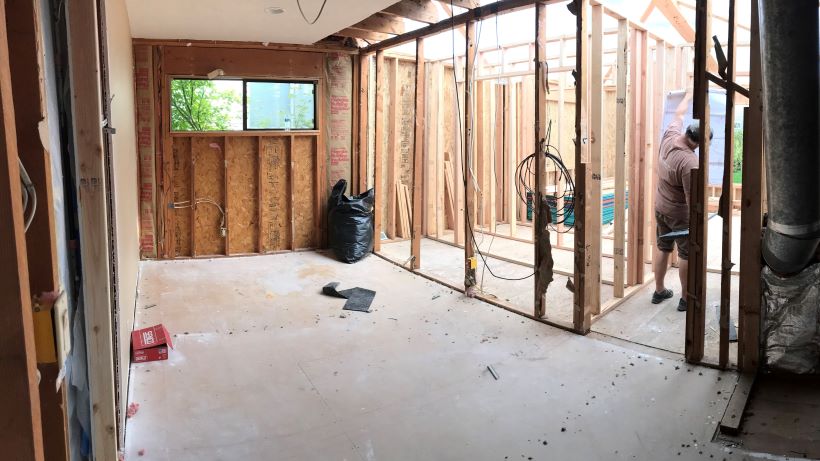Life as a homeowner means being in a constant state of looking around to see what our next project might be. When we bought our house, in fact, we bought it knowing that we would one day lift the roof over the attic and turn that space into a fourth bedroom. Before we had even moved in, before we even purchased the house, we already had plans to change it. It’s not that the house wasn’t inhabitable, it fully was; it was that this house would become the place where our family would grow, change, learn, and make mistakes. It was perfectly imperfect, which made it right for us.

There are other ways to experience this feeling of perpetual creative evolution. Perhaps it is a piece of artwork that you keep coming back to, changing one piece or adding something new. Perhaps it is your garden that appears just right, and then you find that one spot you just have to alter. In our Torah portion this week, the Israelites learn about entering the Land of Israel, and they too learn about being settled in the perfectly imperfect.
Our Torah portion this week, Parshat Ki Tavo, brings us closer to the final lessons God wants the Israelite nation to learn before they enter into the promised land. Our text reminds us again of the blessings and curses that come to us as we choose to follow or ignore the laws of the Torah. Specifically, we learn of the requirement to make an offering of “first fruits” for the priests in the Beit HaMikdash, and the different ways in which we are supposed to thank God and give praise (before prayer was a daily activity). Finally, the text reminds us of how we’re supposed to take time to rebuke one another when we’ve made a misstep and the ways in which we can do so with compassion and kindness.
As the Israelites prepare to enter the land, God instructs them to “build an altar of unhewn stones.” That is, they aren’t supposed to mess with the stones or try to make them perfect. The altar for God in the land that God had promised them needs to be made up of stones that are imperfect and broken, that fit together the best they can, and aren’t too carefully constructed.
This is because, like moving into a new home and finding all the ways you can change the space, the Israelites needed to explore it, live in it, feel it in all its imperfections. As much as we might like to keep adjusting and fixing, The Torah reminds us not to jump into crafting and changing things the second we see them, but instead take time to notice the ways in which a little crack here or a weird corner there can actually be holy too.



